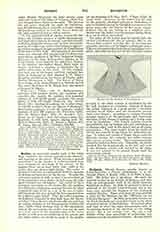

Rochette, DESIRE RAOUL., usually known as Raoul-Rochette, a French archaeologist, b. at St-Amand (Cher), March 9, 1789; d. in Paris, June 3, 1854. His father was a physician. He made his classical studies in the lyceum of Bourges, and then took up post-graduate work in the Ecole Normale Superieure in Paris. In 1810, he obtained a chair of grammar in the lyceum Louis-le-Grand, and in the same year, married the daughter of the celebrated sculptor Houdon. Three years later, he was awarded a prize by the Institute for his “Memoire sur les Colonies Grecques”. In 1815, he became lecturer at the Ecole Normale and succeeded Guizot in the chair of modern history at the Sorbonne. It has been often said that he owed his rapid advancement only to favoritism, because of his devotion to the ruling power; this is not entirely true. He was a real scholar whose deep knowledge of archaeology was admired even by his political enemies. He was elected to the Academy of Inscriptions and Belles-Lettres in 1816, and two years later, made a keeper of medals and antiques. His appointment to the position of censor (1820) aroused the hostility of his students, who prevented him from delivering his lectures and caused the course to be suspended. In 1824 he was transferred to the chair of archaeology. He entered the Academy of Fine Arts in 1838, and was made its perpetual secretary in 1839. Besides his memoirs for the Institute and numerous contributions to the “Journal des Savants”, he wrote many books, the chief of which are: “Histoire critique de l’etablissement des colonies grecques” (Paris, 1815); “Antiquites grecques du Bosphore Cimmerien” (Paris, 1822); “Lettres sur la Suisse” (Paris, 1826); “Memoires inedits d’antiquite figuree grecque, etrusque et Romaine” (Paris, 1828); “Pompeii” (Paris, 1828); “Cours d’archeologie” (Paris, 1828); “Peintures antiques inedites” (Paris, 1836).
Louis N. DELAMARRE.

